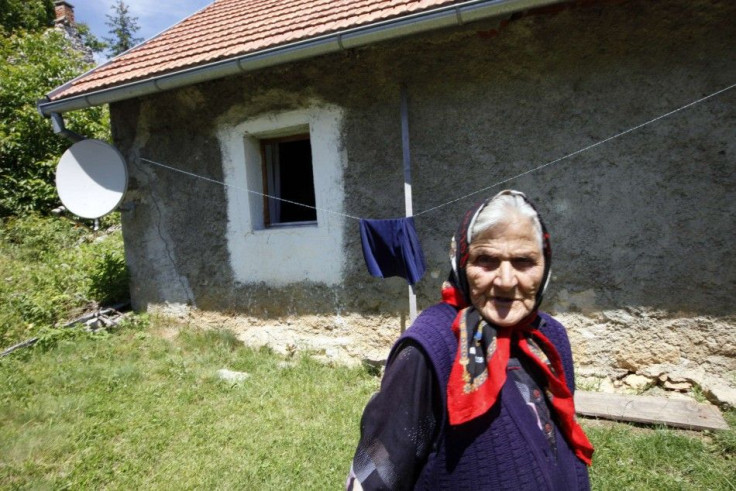Widowhood May Delay Dementia In Some Seniors
Dementia Arrives Later Among Widows ThanMarried Seniors

According to a new research, losing a spouse can delay dementia. Dr Bryan Woodruff, study researcher and an assistant professor of neurology at the Mayo Clinic in Scottsdale, Arizona, said, "For those who had a mild memory problem, losing the spouse was associated with a later age of developing full-blown dementia compared to those who stayed married."
The reasons for this perceived association, however, remains unknown. It could also be due to the emotional support and care they receive from outside that network trumps the widowhood effects they see in other conditions. "We don't know for sure," he said.
The research found that women who were still married were moving into the initial stages of dementia, but those widowed of the same age slipped into dementia about a decade later.
Woodruff would be presenting this intriguing research at an international meeting of the Alzheimer's Association in Copenhagen, Denmark. Studies presented at a medical meeting and not published in a peer-viewed journal are still in its initial stages, he specified." It's premature to say this is definitive, other studies need to be done to confirm the results," he said.
Advising the relatives of older widows, he said, more emotional support must be provided, and in cases where the problem is seen, immediate medical help must be sought. According to the Alzheimer's Association, more than five million Americans suffer from Alzheimer's, the most common form of dementia. The brain disorder leads to memory problems, confusion and difficulties managing day-to-day life. Even slight memory and thinking problems -- called mild cognitive impairment -- can progress to Alzheimer's.
Woodruff said that though widowhood has been linked with health problems, including depression and "broken heart syndrome," little is known about its effect on dementia, and he wished to learn more.
In the first study which lasted from 2005 to 2013, his team studied about 3,800 married men and women who were starting to show some brain decline. Divorcees and widows were excluded. Of the roughly 2,500 people remaining, 134 lost a spouse during the study period.
Almost 1,100 developed dementia. But those who were widowed progressed to dementia at age 92 roughly, while those who didn't lose a spouse were demented by age 83 -- nearly a 10-year difference, the researchers found.
In the other study, Woodruff and his team studied above 6,000 married men and women with no memory issues at the start of the study. After excluding divorcees and those who were separated from their spouse, after which the remaining 4,400 men and women were tracked for an average of nearly four years.
Of that group, 218 developed dementia. However, for widowed persons, the median age was 96. (Half developed it sooner, half later).
Dean Hartley, director of Science Initiatives for the Alzheimer's Association, was surprised by the findings, "We had thought that increased stress [with spousal loss] would accelerate a person with [mild cognitive impairment] going on to dementia," said Hartley, who was not involved with either study. The idea that the extra support may explain the finding makes sense," he said.




















